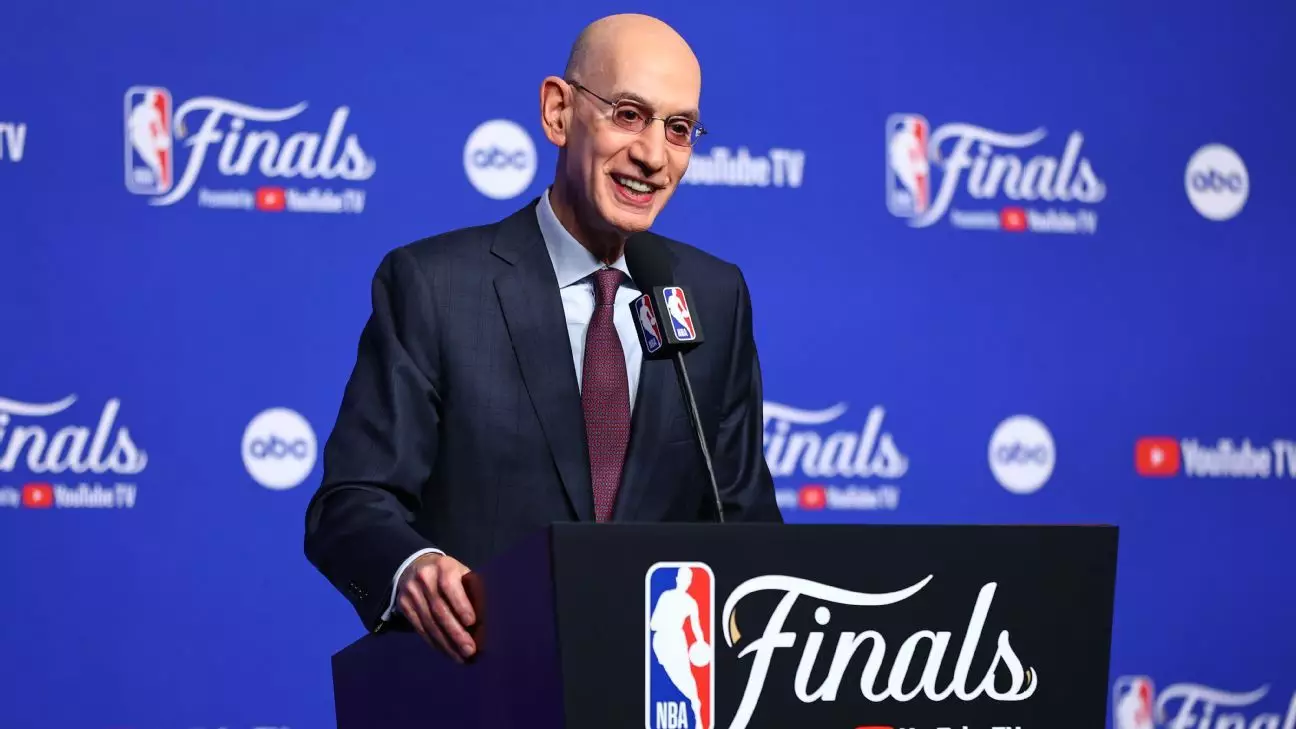In an era where basketball is becoming a global phenomenon, discussions about launching a new professional league in Europe reveal a bold vision for the sport’s future. Adam Silver, the NBA commissioner, has spotlighted the potential of establishing a new league through fruitful collaborations with FIBA and various stakeholders. As the NBA seeks to expand its reach, this initiative feels much like a chess game—strategically moving pieces into place before making a significant move that could reshape the European basketball landscape.
The intention behind this project is not merely commercial; it aims to tap into a fervent community of basketball fans across Europe who are currently underserved. Silver’s recognition of this market is crucial. He sees Europe not just as a series of potential markets but as a robust basketball culture, rich with untold stories and raw talent.
The Challenges Ahead
However, turning this ambitious vision into reality is no small feat. Silver has rightly pointed out that the timeline is not just months but years away. The complexities surrounding the establishment of a new league entail navigating relationships with existing teams and entities, understanding the dynamics of European basketball, balancing various interests, and adhering to the sentiments of the fans. This careful approach is commendable, as rushing into a venture of this magnitude could lead to detrimental outcomes.
Despite the evolving nature of these discussions, some skeptics might question the necessity of another league in a region that already has the EuroLeague, which has a longstanding reputation and a dedicated fanbase. It’s a double-edged sword; while the NBA’s involvement could elevate standards and visibility, it might inadvertently overshadow the existing leagues that have their unique quirks and appealing narratives.
A Partnership Paradigm
Silver’s inclination toward working collaboratively with the existing EuroLeague and its member clubs showcases a more cooperative approach rather than a hostile takeover. This is crucial; partnerships often yield better long-term results than competitive endeavors, especially in a sport that thrives on community and teamwork. Finding a way to harmonize efforts between new leagues and legacy entities may not only validate European basketball’s traditions but also enrich the overall experience for players and fans alike.
In the backdrop of these negotiations, one cannot ignore the explosion of European talent within the NBA. With players like Nikola Jokic, Giannis Antetokounmpo, Luka Doncic, and Victor Wembanyama making waves, there’s a clear indication that the continent is a hotbed for basketball excellence. This only underscores the need for a competitive platform within Europe itself that reflects the NBA’s standards, providing a continuous development funnel for young, aspiring players.
Strategic Timing and Locations
Looking ahead to 2028 and the Los Angeles Olympics, the proposed launch of this new league sets an enticing stage for the evolution of international basketball. Aligning with an event as prestigious as the Olympics is a shrewd move, creating a buzz and drawing global attention. Major cities like London, Rome, and Munich are touted as potential hosts, each bringing unique cultural vibes and fan engagements into the fold. However, as Silver has pointed out, direct conversations with these cities have yet to happen, and that’s where the groundwork needs to be laid.
The excitement hinges not solely on the league’s launch but also on the cultural exchanges that will result. Such a venture will create a unique basketball narrative that blends the raw European style with NBA finesse, potentially giving rise to a captivating product that appeals to a diverse audience.
The Road Ahead
As the NBA board of governors prepares for its pivotal meeting in July, there’s indeed a palpable sense of anticipation. The discussions and strategies laid out may very well set the stage for one of the most transformative changes in international basketball. Should these plans materialize, it would signal a profound shift, marking the Sport’s division into national and regional genres—each with its flavor and audience.
In essence, the potential establishment of a Euroleague modeled after the NBA is not merely an expansion of basketball; it represents a fusion of cultures, ideas, and aspirations. It could redefine club engagements, fan experiences, and player development across the Atlantic, ultimately sculpting the basketball narrative for years to come.

